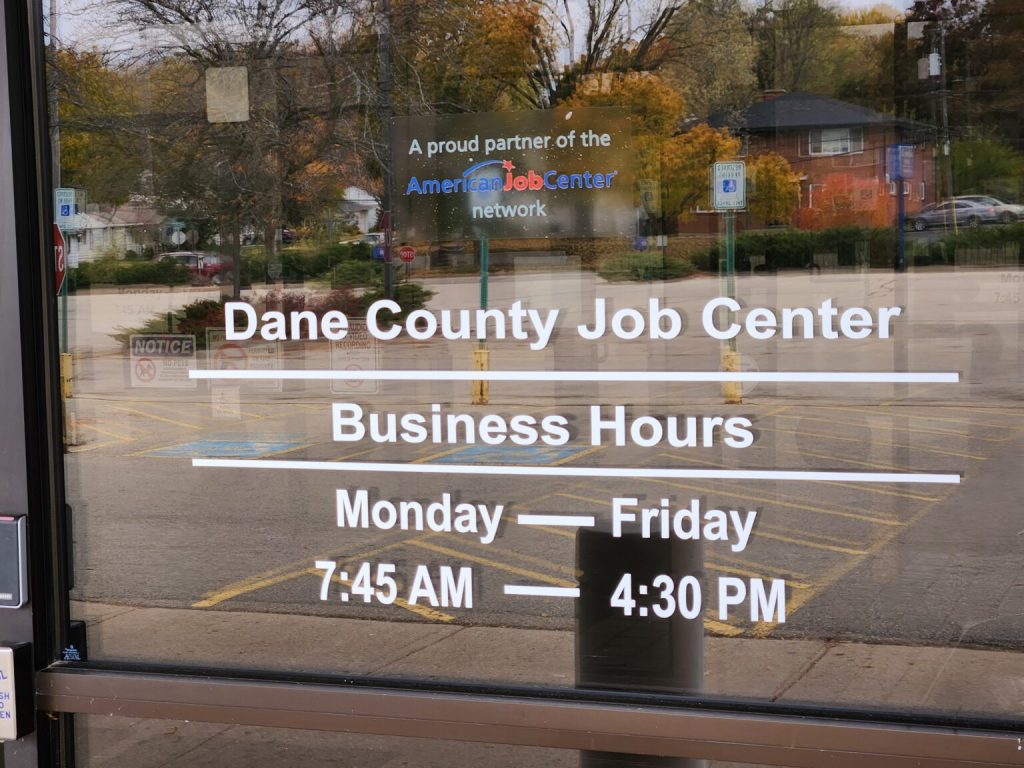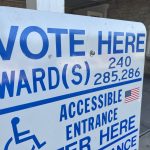Unemployment Insurance Bill Could Divide Democrats
Labor-management council proposes higher benefits, tougher penalties.
Unemployed Wisconsinites could lose a week’s jobless benefits if they don’t show up for an interview if a new draft bill becomes law.
The same measure would also turn up the scrutiny on the weekly work searches that people who’ve lost a job must undertake to collect unemployment insurance.
Gov. Tony Evers has repeatedly vetoed bills authored by Republicans in the Legislature that contain those and other changes to Wisconsin’s unemployment compensation system.
In his veto messages, Evers, a Democrat, has consistently criticized GOP lawmakers for trying to change the rules on jobless pay without working through Wisconsin’s joint labor-management Unemployment Insurance Advisory Council.
This time, however, the proposals have come from the advisory council itself.
On Sept. 24, the council voted to advance a bill that was endorsed by both its labor and management members. Despite that unanimous backing, some worker advocates are condemning the draft legislation.
“This is a terrible, terrible bill,” said lawyer Victor Forberger, whose practice focuses on representing people whose claims for unemployment compensation have been rejected by the Wisconsin Department of Workforce Development.
State Rep. Christine Sinicki (D-Milwaukee), the ranking Democrat on the Assembly’s labor committee, has repeatedly scolded Republican lawmakers for proposing unemployment insurance changes without going through the advisory council.
But after reading the advisory council’s draft legislation, Sinicki said, “I will not be voting for the bill, and we will probably offer an amendment to it.”
Shane Griesbach, a union official who chairs the council’s labor caucus, defends the council proposal, highlighting that it includes an increase in the maximum weekly unemployment benefit for the first time in more than a decade.
“It was a compromise between both labor and management on various issues,” Griesbach told the Wisconsin Examiner.
The draft bill has not yet been formally introduced in the Legislature. On Tuesday, Oct. 28, members of the Assembly Committee on Workforce Development, Labor, and Integrated Employment were told by email to hold their calendars open for a hearing on Nov. 13.
Labor-management negotiations
From the launch of Wisconsin’s unemployment compensation system in 1932 — the first of its kind in the country — the Unemployment Insurance Advisory Council has been a standing feature, intended to reflect the interests of both sides.
“The Wisconsin UI advisory council — with five representatives each from labor and management — was designed to balance the needs of workers and employers in unemployment insurance policy,” said Laura Dresser, associate director of the High Road Strategy Center, a think tank at the University of Wisconsin-Madison that focuses on the impact of economic policy and trends on working people.
“It is a good idea, and part of the Wisconsin Idea, to build this sort of policy infrastructure around the people who rely on and fund the system,” Dresser said. “But if either labor or management thinks they can get a better deal from the Legislature than the advisory council, that undermines the policy-making power of the council itself.”
Among the controversial provisions of the draft bill is a disability pay penalty.
Under the typical protocol for bills that come from the advisory council, Sinicki, as the ranking minority party member of the labor committee would be listed as a coauthor of the legislation.
But Sinicki objects to the bill’s proposed penalty for people with unemployment claims who receive federal disability payments. If that doesn’t change, “I will not put my name on the bill,” Sinicki said
Since 2013, people laid off from work have been denied unemployment compensation if they also received Social Security Disability Income. This summer, a federal judge ended that ban, and the advisory council’s draft bill removes the ban as well.
But the draft bill also includes an “offset” that would claw back money from the SSDI recipient’s jobless pay each week. Over the course of one month, the amount clawed back would equal 50% of the recipient’s monthly disability check.
Earlier this year, DWD proposed to the advisory council ending the SSDI jobless pay ban but deducting 100% of federal disability income.
In September, Sinicki and state Sen. Kristin Dassler-Alfheim (D-Appleton) introduced their own bill to repeal the SSDI unemployment pay ban and criticized DWD’s offset recommendation. Nine days later, the department told the Unemployment Insurance Advisory Council it was dropping the offset proposal entirely and simply recommending an end to the SSDI jobless pay ban.
The advisory council brought back the offset, however, at 50% rather than 100% of the federal disability income, in the draft bill approved Sept. 24.
Forberger said that at either 100% or 50%, requiring an offset against disability income is likely to wipe out jobless pay for many SSDI recipients.
Resurrecting vetoed changes
Other provisions in the advisory council draft have previously passed the state Legislature with only Republican votes, and then been vetoed by Evers.
‘Ghosting’ interviews: Unemployment insurance recipients accused of “ghosting” a scheduled job interview — failing to show up — would lose their weekly jobless pay for that week. A recipient would also lose benefits for a week for declining a job offer or failing to report on the first scheduled work day after being offered a job.
Republican lawmakers this year passed legislation that also would penalize “ghosting” interviews and rejecting job offers. No Democrats voted for the legislation, and Evers vetoed the bill, AB 169, on Friday.
“I object to creating additional barriers for individuals applying for and receiving benefits from a program that is designed to support people and families experiencing economic hardship, as well as creating additional mandates for the department in administering these benefits,” Evers wrote in his veto message.
Forberger said the ghosting penalties — which have been introduced and vetoed in past years as well — are unneeded, with unemployment insurance claims remaining at close to record lows.
“We’ve still got a huge worker shortage in the state,” Forberger said. “This does absolutely nothing.”
Work search audit quotas: Another provision in the advisory council bill would require DWD to audit the work searches of half of all people making unemployment claims.
Evers vetoed a bill in 2023 that included the work search audit requirement.
“I object to this bill because the department already has substantial eligibility requirements and fraud prevention mechanisms in place to protect the unemployment system from potentially fraudulent activity,” Evers wrote at the time.
In response to a Wisconsin Examiner inquiry, DWD Communications Director Haley McCoy said via email that the department’s unemployment insurance division “has a well-established work search auditing program.” People making unemployment insurance claims must report their required work searches each week, which are subject “to random or targeted audits,” McCoy said.
McCoy declined to specify the department’s current audit frequency, calling that information “sensitive” and confidential “to protect program integrity.”
Identity proofing requirements: The advisory council bill includes new requirements for unemployment insurance applicants to prove their identities, and would require DWD to follow specific steps, including comparing applications for jobless pay against databases tracking death records, employment records, citizenship and immigration records.
On Friday Evers vetoed AB 168, which included similar identity proofing requirements.
“The department already implements comprehensive fraud prevention strategies, including identity verification, making the proposal to mandate identity proofing both unnecessary and overly burdensome of claimants,” Evers wrote in his veto message.
A benefit increase
The advisory council bill includes a one-time $25 increase in the maximum weekly payment that goes to jobless workers: to $395 a week starting in 2026, from $370 a week.
The last time unemployment has seen an increase in the weekly benefit rate was 2013,” said Griesbach, the council’s labor caucus chair.
Griesbach said that benefit increase, the unemployment insurance clawback for disability pay, the “ghosting’ penalty and the work search audit requirements were all products of the advisory council’s consensus process.
“All those things were part of an agreed-upon bill between labor and management and negotiation and compromise by both groups,” Griesbach told the Wisconsin Examiner. “It was an agreed-upon bill, and there were a lot of different topics that were discussed, and that was the compromise that was reached.”
Forberger said the proposed benefit increase keeps Wisconsin’s top unemployment benefit well below other Midwestern states.
In Iowa, Michigan, Minnesota and Illinois, the maximum weekly benefit is at least $500 a week or more. Only Indiana, with a maximum benefit of $390 a week, would be lower, he said.
“This is a paltry increase,” Forberger said of the Wisconsin proposal. “It’s nothing to brag about.”
The advisory council bill’s increase is also less than DWD had recommended in its proposals to the council. The department proposed raising the maximum weekly benefit by $127 in 2026, to $497, and then indexing the maximum to the consumer price index in 2027.
Sinicki acknowledged that by giving new life to Republican-authored unemployment insurance bills that she’s sharply criticized in the past, the advisory council’s bill has put her in a difficult position.
The ghosting penalty, for example, is an “attempt to throw more people off of unemployment insurance,” Sinicki said. She also voiced skepticism of increasing work search audits without funding more staff positions.
But the disability penalty, she said, is more than she would be willing to support.
“This puts me in a very tough spot, and also puts a lot of Democrats in a very tough spot,” Sinicki said. “As a Democrat, I cannot vote to take away benefits from disabled people.”
Unemployment insurance bill sparks sharp disagreement was originally published by the Wisconsin Examiner.
If you think stories like this are important, become a member of Urban Milwaukee and help support real, independent journalism. Plus you get some cool added benefits.























“both sides” is such a ridiculous thought when it comes to basic welfare.
Neolibs need to take a hike.